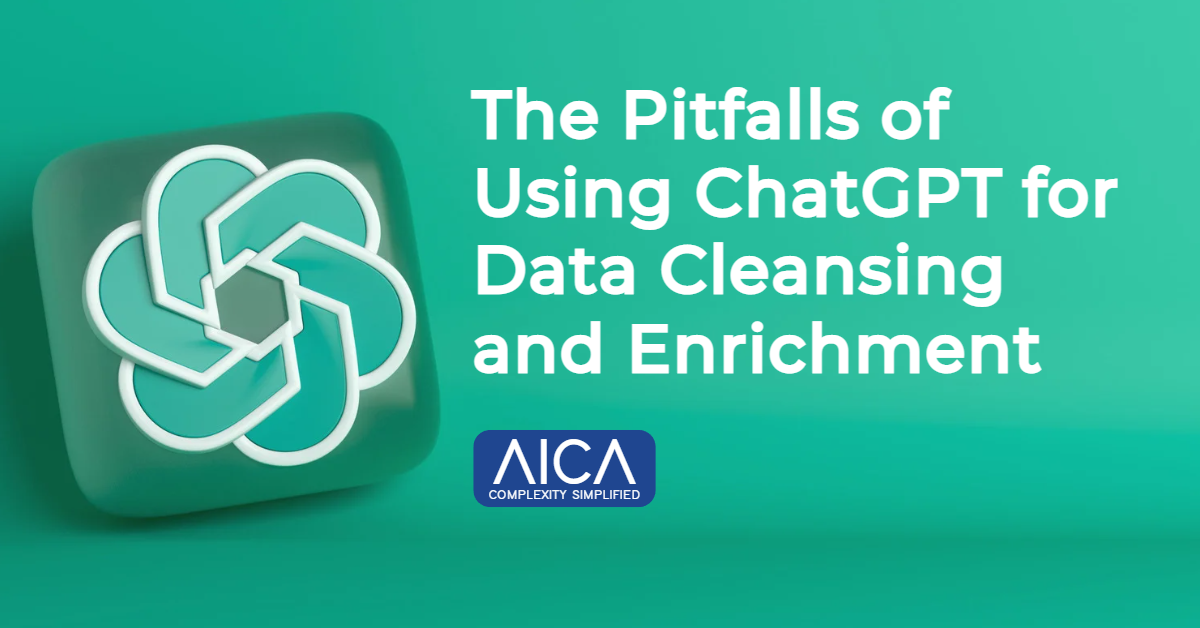In today’s data-driven business environment, the quality, accuracy, and richness of data determine the value of the insights that can be extracted from it.
Data cleansing and data enrichment are essential to this. Data cleansing entails identifying and correcting corrupt, inaccurate, or irrelevant data, while data enrichment enhances existing data with information from external sources to create a more comprehensive dataset.
Machine Learning (ML) algorithms have emerged as powerful tools for automating and enhancing these processes. In data cleansing, ML algorithms can identify common errors, anomalies, or inconsistencies based on learned patterns. In data enrichment, they can predict missing values, add meaningful attributes, or link disparate datasets together. By learning from patterns in existing data, ML models can significantly increase efficiency and improve the accuracy of the results.
Many businesses have recently begun using ChatGPT to clean and enhance their clients’ product data. While AI language models like ChatGPT are remarkably powerful tools, their application in data cleansing and enrichment has raised substantial concerns, particularly in terms of data privacy and compliance. These models are primarily designed for understanding and generating human-like text, rather than processing sensitive and confidential data for cleansing and enrichment.
Consequently, their use in this arena may inadvertently lead to several issues.
The Challenges with Using Language Models
Language models, while potent tools for natural language understanding and generation, are not ideally suited for tasks like data cleansing and enrichment.
Data Privacy Risks
Language models ingest large amounts of data, and in the process, they might unintentionally access sensitive or confidential information. If this data gets stored, even temporarily, there’s a risk of inadvertent disclosure or misuse.
Difficulty in Anonymising Data
Techniques like anonymisation can be used to de-identify data before using it in AI models. However, advanced AI models can sometimes decipher or re-identify anonymised data, leading to potential privacy breaches.
Data Retention and Deletion Concerns
Complying with data protection regulations, such as GDPR’s “right to be forgotten”, can be challenging. Once data is used in an AI model, extracting or deleting specific data points can be nearly impossible due to the distributed nature of how data is stored within the model.
Data Security Challenges
These models often run on cloud-based servers, and data security during transmission and storage is a significant concern. Unauthorised access to confidential data due to data breaches can lead to substantial reputational and financial damage.
Legal and Regulatory Implications
Firms must comply with data protection laws. Non-compliance could lead to substantial fines and reputational harm.
AICA: Your Partner in Secure Data Enrichment and Cleansing
AICA, specialises in product data cleansing, enrichment, and comparison with the help of its proprietary machine learning algorithms. By putting data privacy and security at the core of its operations, AICA ensures safe data management, eliminating the issues associated with using general-purpose language models like ChatGPT.
Secure Data Handling
AICA has implemented robust security measures to ensure that client data remains secure throughout the data cleansing and enrichment process. These safeguards protect against unauthorised access, data breaches, and inadvertent disclosure of sensitive information.
Compliance with Data Protection Laws
AICA prioritises legal and regulatory compliance in all its operations. It has a transparent process for data handling and actively complies with data protection laws such as GDPR and POPIA, providing an extra layer of trust and security for its clients.
Superior Data Cleansing and Enrichment
Beyond security, AICA’s machine learning algorithms outperform general language models in the specific task of data cleansing and enrichment. They are purpose-built for these tasks, unlike ChatGPT, which is designed for a broad range of language tasks. AICA’s algorithms are fine-tuned to handle inconsistencies, detect anomalies, and enrich data effectively and accurately, ensuring high-quality output that leads to better insights and decision-making for businesses.
In summary
While language models like ChatGPT have their merits, they are not ideally suited for data cleansing and enrichment tasks. AICA, with its focus on secure data handling and superior task-specific performance, provides businesses a safe, efficient, and effective alternative for their data enrichment and cleansing needs. AICA helps companies turn data into a valuable asset, providing insights without compromising data security or privacy.

